November 29, 2025
China's application for the
“Traditional Chinese Tea processing Techniques and Associated Customs”
has been successfully inscribed on the
Representative List of the Intangible Cultural Heritage of Humanity by UNESCO
becoming China's 43rd intangible cultural heritage project.
In the application for the
“Traditional Chinese Tea Processing Techniques and Associated Customs”
a total of 44 projects were included,
among which are the Green Tea Making Skills
(Yuhua Tea Making Skills).
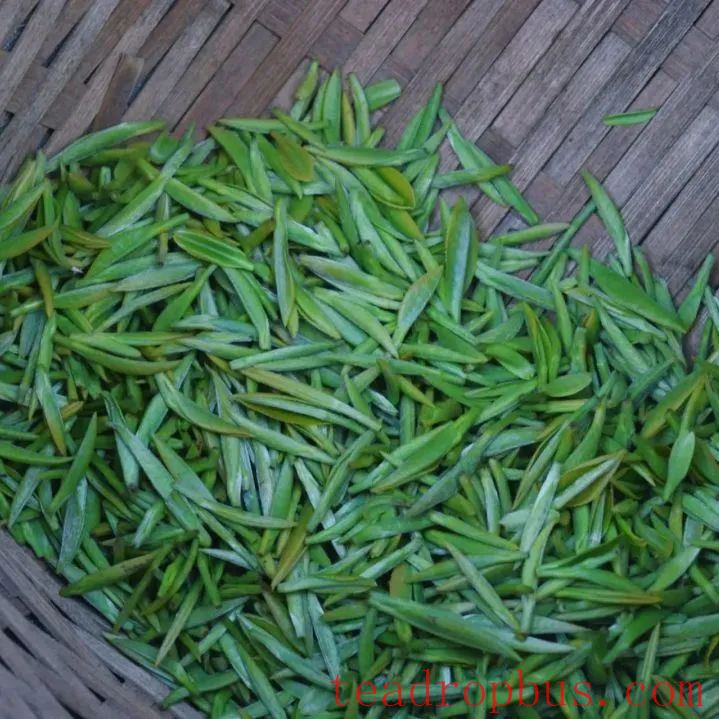
The origin…
The name Yuhua Tea is not coincidental.
It carries profound cultural connotations.
Nanjing's Yuhua Terrace was originally called “Jubao Mountain.”
According to legend, during Emperor Wu of Liang's reign, Master Yun Guang lectured here,
and heavenly flowers rained down, hence the name “Yuhua Terrace.”
The shape of Yuhua Tea is round and green, like pine needles,
with white tips, tightly straight and upright.
This form is not only aesthetically pleasing,
but also symbolizes the unyielding spirit of revolutionary martyrs
and their eternal greenness.
Therefore, the name Yuhua Tea is not just a memorial to
this historical event,
but also a tribute to the spirit of revolutionary martyrs.
In 1958, in order to present a gift for the tenth anniversary of the founding of New China, Jiangsu Province established a special committee and began developing a new variety of green tea. After nearly a year of effort, it was successfully created in the spring of 1959 and officially named “Yuhua Tea.”
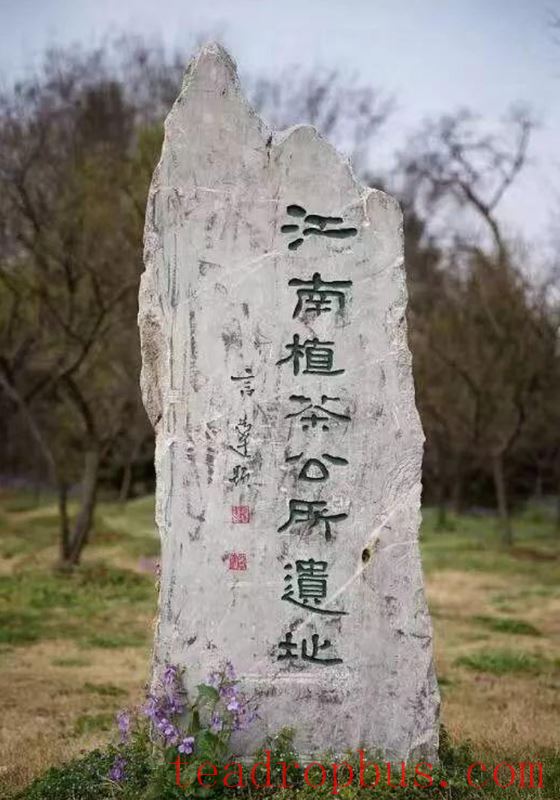
At the end of the Qing dynasty, Lu Yong and others led the establishment of the national tea research institution “Jiangnan Tea Planting Public Office” in Nanjing's Zijin Mountain, where they reclaimed land around the Linggu Temple area for tea planting and production, naming the tea “Cloud Mist Tea.” After the Revolution of 1911, tea makers developed a rolling technique, giving Cloud Mist Tea an initial pine needle-like shape. After liberation, tea makers incorporated the strip-grabbing technique, and Cloud Mist Tea was finally shaped into a tight, fine, round, and straight pine needle-like form, and in 1959, it was renamed “Yuhua Tea.”
Production Skills
The main process for making Yuhua Tea includes: fresh leaf picking → spreading → fixation → rolling → preliminary drying → shaping → final drying → refining → baking → packaging.
Fresh Leaf Picking: Yuhua Tea is generally picked around the Qingming Festival, with the standard being one bud and one leaf just unfolded. The picking criteria require complete and uniform buds and leaves, avoiding rain-soaked leaves, purple buds, diseased or insect-infested leaves, and opposing leaves. There are about 50,000 to 60,000 buds and leaves in every 500 grams of finished Yuhua Tea.
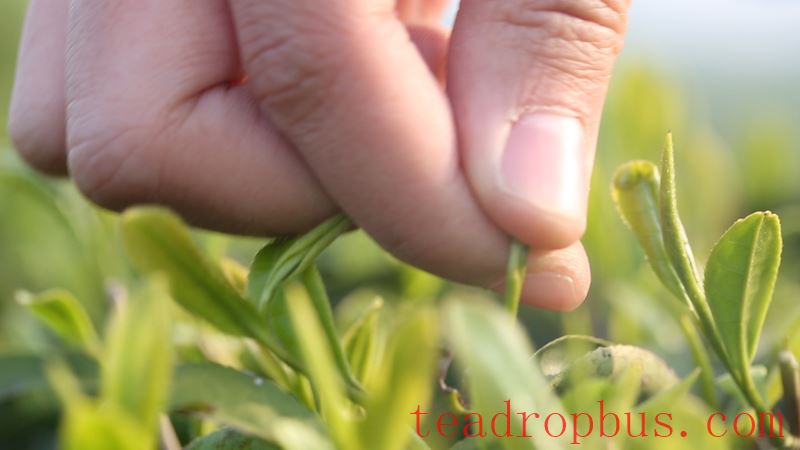
Spreading: Freshly picked leaves are promptly spread out and placed in a cool, ventilated area at room temperature for 2 to 3 hours, with 1 to 2 turns in between. The handling must be gentle, and the leaves should be evenly scattered.
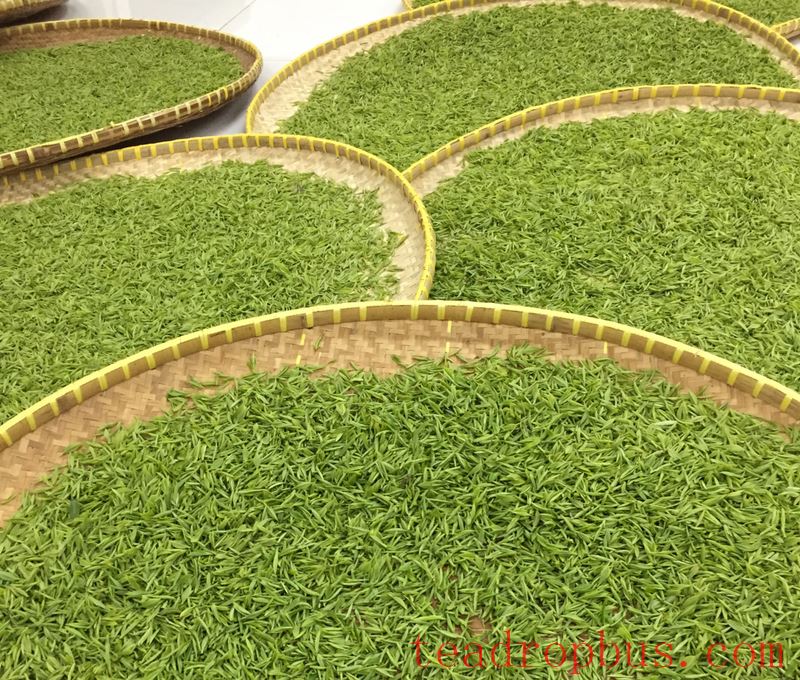
Fixation: Performed in a flat pan, the pan temperature needs to be above 200°C, with approximately 500 grams of fresh leaves per pan. The fixation time is 5 to 7 minutes, ensuring that “the edges are scorched but not the leaves, and the stems can bend without breaking.”
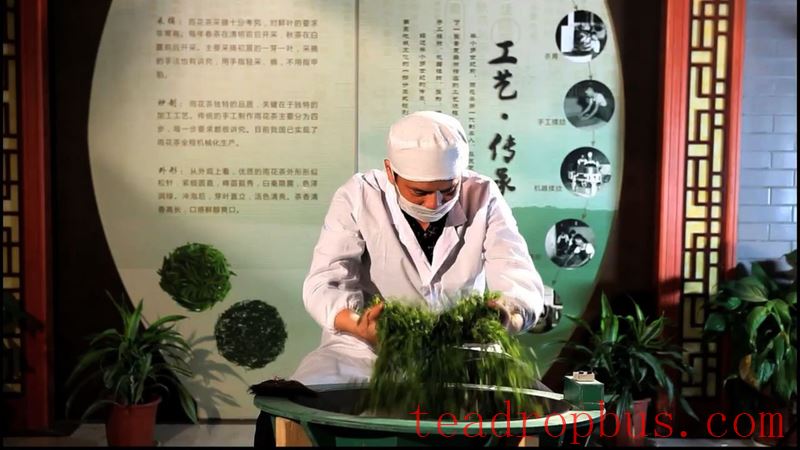
Rolling: Cold rolling is a key step in forming the tight, fine, and round shape of Yuhua Tea. It requires tight, thin, and round strips, with a high degree of cell wall rupture after rolling, resulting in a more mellow flavor.
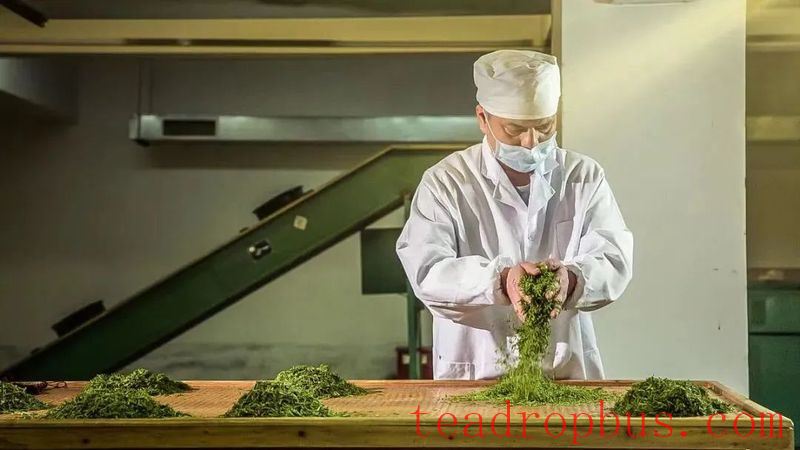
Rolling Strips: Rolling strips is one of the main techniques used to shape Yuhua Tea. The pan temperature starts high and gradually decreases from 80°C to 50°C. When rolling strips, the palm is fully filled with tea leaves, following the principle of light – heavy – light. Rolling strips further refines the tight, thin, and round shape.
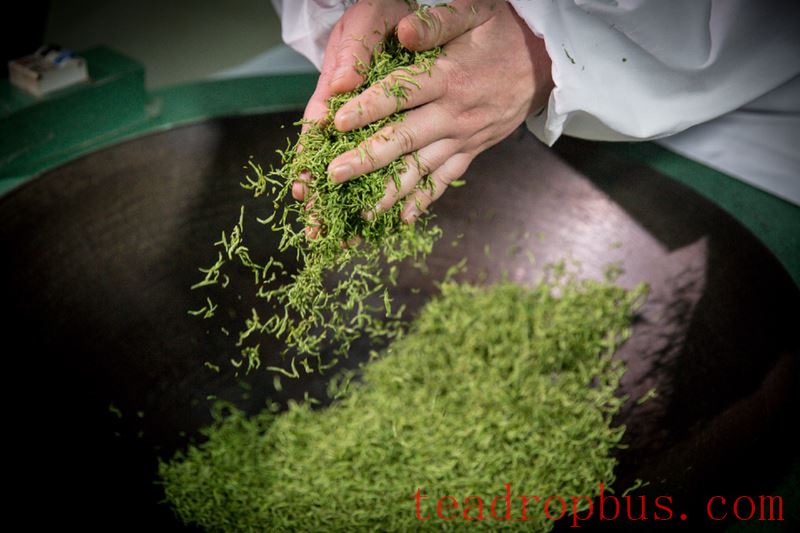
Shaping (strip-grabbing and strip-arranging): Strip-grabbing and strip-arranging are core techniques for shaping Yuhua Tea. During this process, the fingers naturally curve together, with the thumb spread apart. By contracting the palm near the wrist, the tea moves from the back of the hand through the space between the thumb and index finger, allowing the tea to freely roll in the palm. The purpose of strip-grabbing and strip-arranging is to create the characteristic tight, thin, round, and straight, sharp and beautiful appearance, resembling pine needles.
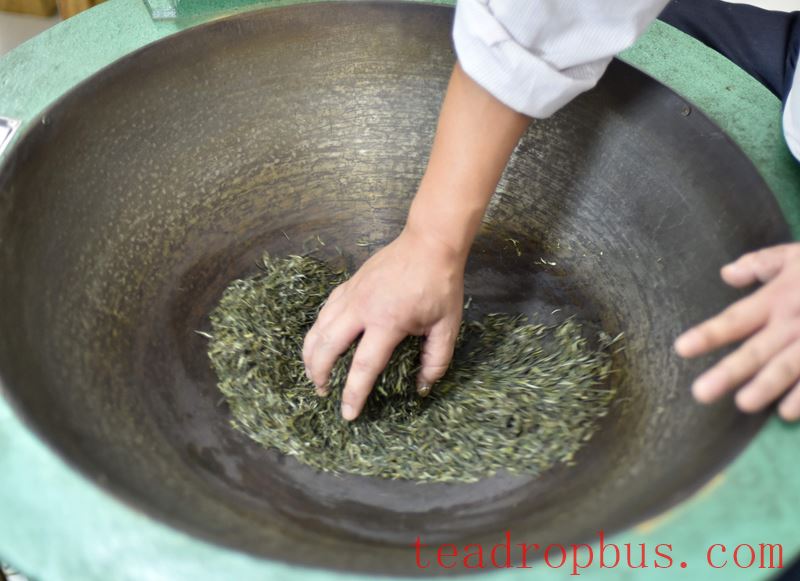
Sieving and Refining: Using different-sized bamboo sieves, various techniques such as shaking, lifting, and floating sieving are employed to separate the tea based on size, shape, and weight.
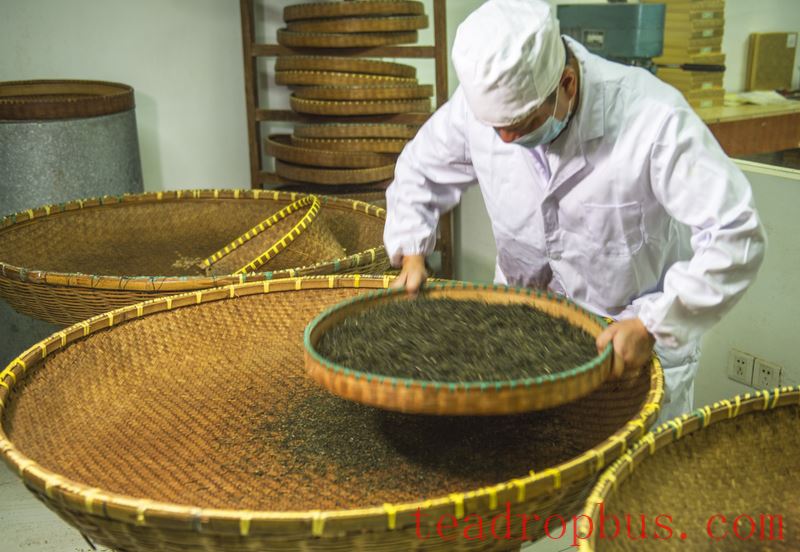
Baking: The shape of the baking cage is a pointed-roofed structure, with the temperature increasing as the height increases. The charcoal fire is arranged in steps, and the tea is baked by rolling from top to bottom.
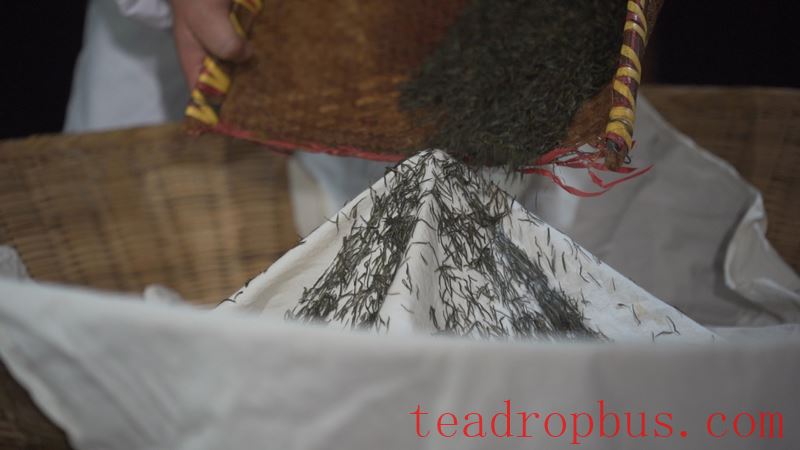
Quality and brewing
Yuhua Tea is renowned for its unique quality characteristics. Its dry tea has a pine needle-like shape, tightly straight and round, with sharp and beautiful tips, a verdant green color, and visible white tips. When brewed, the tea liquor is clear and bright green, with a delicate and elegant aroma, a fresh, cool, and full-bodied taste, and a sweet aftertaste.
These quality characteristics not only distinguish Yuhua Tea among many other green teas but have also earned it the love and praise of tea enthusiasts.
Inheritance and Protection
The Green Tea Making Skills (Yuhua Tea Making Skills) were listed in the Representative List of National Intangible Cultural Heritage Projects of China in 2025.
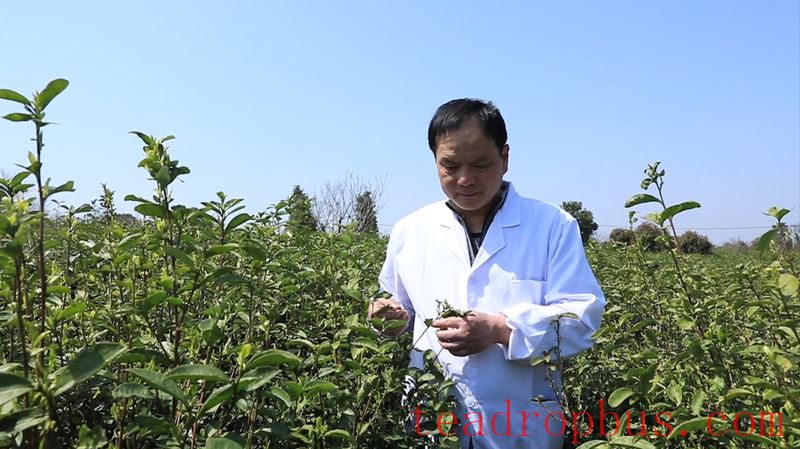
Chen Shengfeng, a representative inheritor of provincial-level intangible cultural heritage in Jiangsu. Since the 1990s, represented by Chen Shengfeng, the fifth generation of Yuhua Tea inheritors formulated national standards for Yuhua Tea and conducted training courses, compiled promotional materials for Yuhua Tea, and dedicated themselves to the inheritance